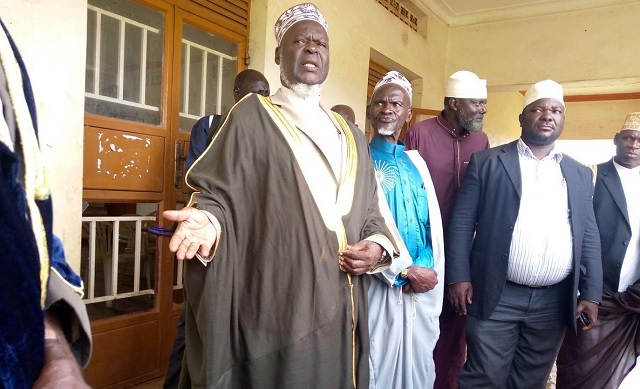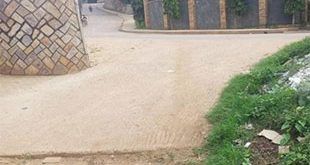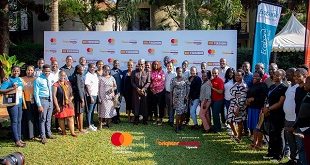
Kampala, Uganda | THE INDEPENDENT | The Uganda Muslim Supreme Council (UMSC) has established a board of trustees for property and endowment (Awqaf) management. The board of trustees, led by Abubakar Mugaino and deputized by Hajji Jamad Luuta Musoke, will have representation from all Muslim regions.
The board’s primary objective is to restore order to the management of Muslim properties, which has caused disunity and factionalism among Muslims for many years. Professor Muhammad Lubega, the national chairperson of UMSC, stated that this new initiative seeks to revolutionize property management from the mosque level to the national level.
During a press conference, Professor Lubega disclosed that individuals of exceptional integrity from different regions were selected by the joint session to oversee the management of Muslim community-owned assets in Uganda.
During the swearing-in ceremony, the Mufti of Uganda, Sheikh Shaban Ramadhan Mubaje, urged the members to execute their duties without fear or favor. “Your appointment is meant to save the mufti’s office because whatever has been going on regarding Muslim property in the past, the blame has always been put squarely on the Mufti,” Sheikh Mubaje noted.
UMSC owns several properties and assets throughout the country, many of which are idle, have been taken over by unscrupulous individuals, or are poorly managed. With the establishment of the board of trustees, Professor Lubega called on anyone unlawfully occupying any land or property belonging to UMSC and its branches to register their occupancy before action is taken.
Professor Lubega cited businessman Hassan Basajabala, who illegally occupied more than 30 acres of Muslim land in Bushenyi and developed it, including constructing a university and a hospital. He urged those in similar situations to register their occupancy with their local Muslim districts before it’s too late.
Muslims have been entangled in property disputes resulting in a split in leadership. A group based in Kibuli accused Mufti Mubaje’s leadership of mismanaging Muslim property, with some being sold illegally. In 2012, President Museveni directed Prof Tarsis Kabwegyere to investigate the root causes of recurring conflicts and disunity among Muslims, as well as the irregular sale of community properties.
The committee’s report, released on June 20, 2014, revealed that 13 valuable properties in Kampala and ranches in Nakasongola, Kiryandongo, and Sembabule had been unlawfully sold in violation of a 2004 High Court order that barred the sale or mortgage of UMSC properties without a unanimous resolution from its executive committee.
“Given the acrimony that the sale of Muslim properties has generated, the committee recommends an immediate ban on any further sale, lease, transfer or dealing in any way in property…until this ban is lifted,” the report stated.
The joint session also established the 21-member Muslim arbitration and reconciliation committee, led by Sheikh Obed Kamulegeya and deputized by Sheikh Luutu Sulaiman Wandera. Professor Lubega noted that the committee would help Muslims settle their internal issues and conflicts before rushing to courts of law, which has tarnished Islam’s image over the years.
The new UMSC leadership has established a strategic development plan based on seven pillars. These include improving the socio-economic well-being of Muslims, enhancing UMSC’s financial strength by tapping into its resources controlled by unscrupulous individuals, and improving education by establishing more schools to address the current shortage and poor performance.
Other pillars include health, sanitation, and capacity building, which will involve setting up a central national theological college to train Muslim leaders and expanding institutional development by establishing functional structures and systems from the mosque to the national level. To implement the first year of the plan, the council has budgeted 74 billion Shillings, which will help them run their activities at the different administrative levels.
*****
URN
 The Independent Uganda: You get the Truth we Pay the Price
The Independent Uganda: You get the Truth we Pay the Price



